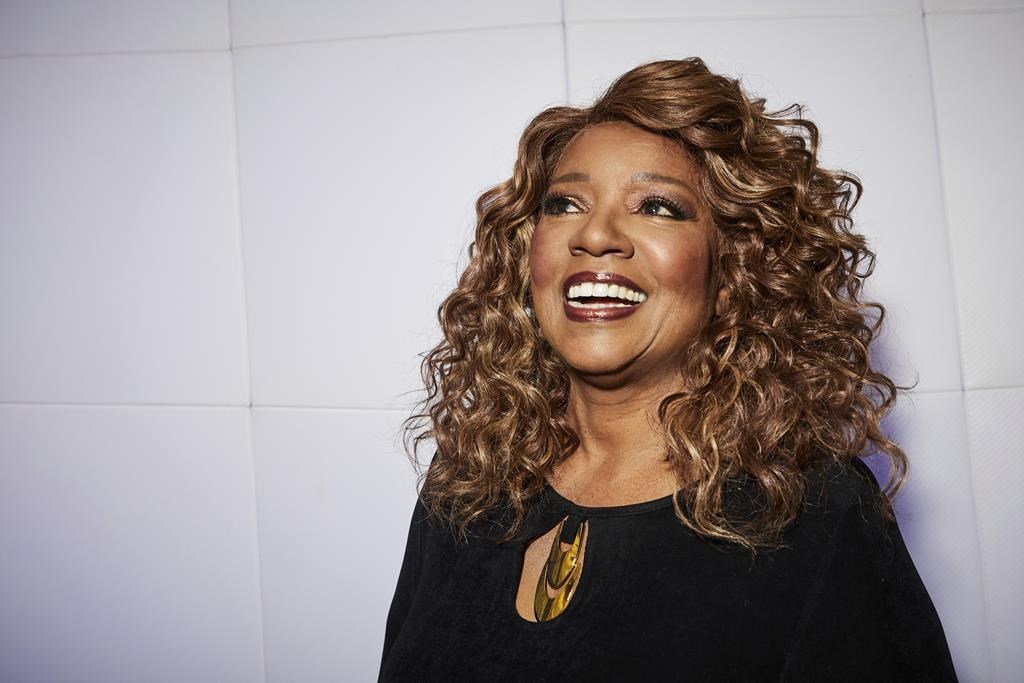Q&A: Gloria Gaynor on ‘I Will Survive,’ the move from disco to gospel, her new film and new music

Posted Feb 12, 2024 04:02:44 PM.
Last Updated Feb 12, 2024 04:10:32 PM.
LOS ANGELES (AP) — Nearly 50 years ago, Gloria Gaynor released “I Will Survive,” the first disco song to top the Billboard charts and the only one to be awarded a Grammy for best disco recording.
Then, 40 years later, she earned another Grammy: for her 2019’s gospel album, “Testimony.”
She’d made a triumphant genre pivot to the music that has always fueled her faith, following a devastating divorce at age 65, financial woes and health issues — all while staying true to the resilient spirit and idiosyncratic talent that made her a superstar in the first place.
A new film, “Gloria Gaynor: I Will Survive,” celebrates her legacy, and will hit U.S. theaters for a special one-night only presentation on Tuesday. It examines the long road to “Testimony,” but also Gaynor’s traumatic past: how she was raised in poverty, survived childhood sexual assault and went on to become a music icon.
Beyond the title, the documentary uses “I Will Survive” as a framework to describe Gaynor’s extraordinary life and the lives of every generation that finds it and uses it as a soundtrack for their own struggles.
“That song, for me, is the core of my purpose, which is to bring hope, encouragement, inspiration and empowerment to people — especially women,” Gaynor told The Associated Press over Zoom from New York City. “That’s what my life is about now. And that’s what I think it’s been about for many years and will continue to be about.”
This interview edited for clarity and brevity.
AP: A documentary is a wonderful opportunity to consider your own career. Did you learn anything about yourself in this process?
GAYNOR: What I did learn in the process was how I’ve been able to, through my faith, not allow my experiences to define me anymore. I had at one time allowed that. And so I’ve been able to release myself from that and that’s one of the things I want to impart to the audience — that your bad experiences don’t need to define you.
AP: In the film, it seems like “I Will Survive” is a song that came to define you many times in your life — with issues in the industry, your ex-husband, your childhood and beyond.
GAYNOR: The song was my mantra before I heard the melody. Just from the first time I read the lyrics, it became my mantra, and it remained my mantra, and still is, pretty much, throughout my life. It’s just a wonderful tool to keep me in check and to keep me grounded and remind me who I am: that I am truly a survivor and that can continue throughout my life.
AP: When did your love of gospel begin?
GAYNOR: From my childhood. There was always gospel music playing in my house. My grandmother was a devout Christian… We had a lot of gospel music happening in my house as a child. And so I learned to love it there.
AP: Are there similarities, in your view, between disco and gospel?
GAYNOR: I think there are two things, two similarities, between disco gospel music. The first one is that both of them do touch your soul and do express things that are happening within. And the other thing is that disco music is the only music, in the history of music, ever to bring people together from every race, creed, color, nationality and age group. And gospel music has that same unifying power.
AP: I’ve heard people refer to disco dancing as “going to church,” as if there’s some religious experience there.
GAYNOR: It is spiritual.
AP: The film ends with a new music tease — were you going to release a new album last year, on your 80th birthday? When is it coming out?
GAYNOR: It is coming later this year. We are writing. We have written several songs for it already with great writers that I’m still continuing to work with. People who have written for Miley Cyrus and Kelly Clarkson, Meghan Trainor, Dolly Parton — so great, great writers. And we’re doing some really good stuff. We got some really good stuff coming out for people.
AP: How did you celebrate turning 80?
GAYNOR: We had a wonderful party on a three-decker cruise ship. It went around New York City and we stopped and took pictures in front of the Empire State Building. My friends got together, chipped in, to bring in from Florida this painter who did a portrait of me upside down while we all watched him do it. And it was amazing because we were looking at him saying, “What is he doing?” He’s like slinging paint and flailing his arms and all this. And I’m thinking, “I hope they don’t mind paying for this.” But when he finished, he flipped it and “Oh my God, it’s awesome.”
AP: Disco has entered the pop mainstream — even with the “Barbie” soundtrack. What are your thoughts on that continued legacy?
GAYNOR: I think it’s wonderful. And perhaps the world is beginning, or at least the music world is beginning to recognize that. Disco never got its due… It deserves a place in every decade of music.
AP: When the U.S. turned its back on disco, you found great success in Europe. What’s different about those audiences?
GAYNOR: What I saw and continue to see in the audiences is that they are not, disposable. They like older things. They appreciate older things that endure. I often say America is a teenage rock star who’s having an identity crisis. We do live in a kind of a disposable society and we were always ready to throw out something that is more than a few years old. Whereas they treasure it. They see the value in it and embrace it.
AP: How do you consider your legacy, now?
GAYNOR: I was given a wonderful gift with the song “I Will Survive” to share with the world, to help them to grow and to inspire, uplift, empower, encourage them. And I hope that that’s my legacy, that is what I have done and what my music will allow me to continue to do long after I’m gone.
Maria Sherman, The Associated Press








